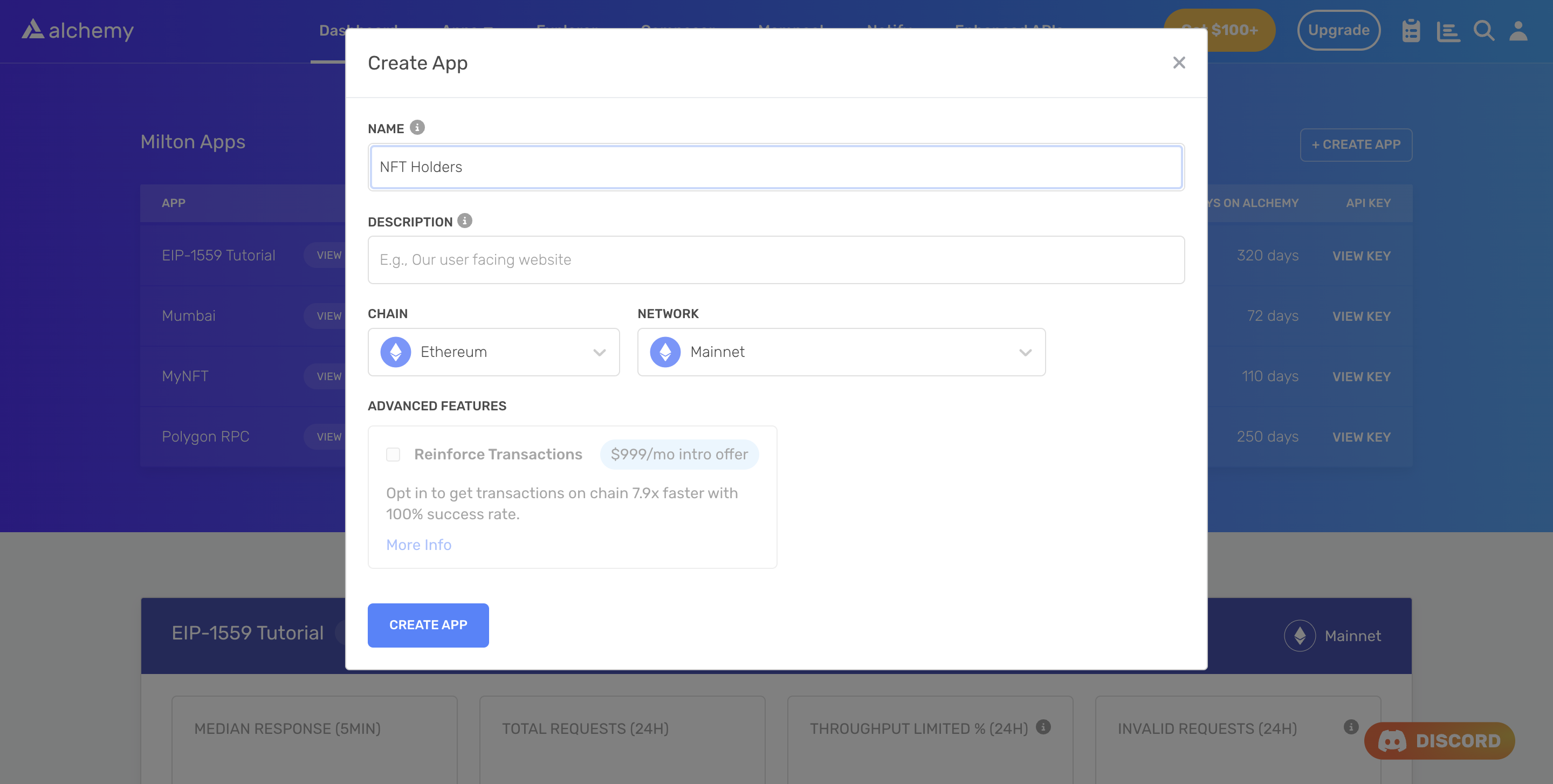How to Get a List of NFT Holders for a Given Collection
This tutorial uses the getOwnersForContract endpoint.
Getting a list of wallet addresses that hold an NFT from a particular collection is an incredibly insightful piece of data. You could track the behavior of these wallets, and gain useful insights about the market. You could also generate analytics that mapped interests to wallets.
Although a vast number of companies and projects harvest NFT ownership data to display to their users, doing so through traditional means is not an easy task. Typically, you would have to spin up a node, and call the ownerOf function of the ERC-721 or ERC-1155 contract. Since it is not uncommon for NFT collections to have 10,000+ NFTs, it also means that you’ll have to call the aforementioned function many, many times.
This process can be expensive and time consuming. Fortunately, we can save on time and engineering efforts by replacing all the above work with a single call to getOwnersForContract.
About this Tutorial
We will write a simple script in Node to gets us all the owners of the World of Women collection using a free Alchemy developer account and the NFT API.
Creating the NFT Holders Script
Step 1: Install Node and npm
In case you haven’t already, install node and npm on your local machine.
Make sure that node is at least v14 or higher by typing the following in your terminal:
Step 2: Create an Alchemy app
In case you haven’t already, sign up for a free Alchemy account.

Alchemy’s account dashboard where developers can create a new app on the Ethereum blockchain.
Next, navigate to the Alchemy Dashboard and create a new app.
Make sure you set the chain to Ethereum and network to Mainnet.
Once the app is created, click on your app’s View Key button on the dashboard.
Take a note of the API KEY and HTTPS URL.
The URL will be in this form: https://eth-mainnet.g.alchemy.com/v2/xxxxxxxxx
You will need this later.
Step 3: Create a node project
Let’s now create an empty repository and install all node dependencies.
To make requests to the NFT API, use the Alchemy SDK.
You can also use axios or fetch alternatively.
This will create a repository named nft-holders that holds all your files and dependencies.
Next, open this repo in your favorite code editor.
We will be writing all our code in the main.js file.
Step 4: Get all current holders of the NFT collection
To get all holders of a particular NFT collection, we will use the getOwnersForCollection method.
This method takes in one required argument:
contractAddress: The address of the NFT collection (an ERC-721 or an ERC-1155 contract)
Note that it is also possible to optionally set a block height parameter. We do not need to do this here since it is set to the latest block by default.
Add the following code to the main.js file.
Run the following command on your terminal:
If all goes well, you should see output that looks something like this:
Conclusion
Congratulations! You now know how to use the Alchemy NFT API to get a list of all holders of an NFT collection or contract.
If you enjoyed this tutorial on how to get all holders of an NFT collection, give us a tweet @Alchemy.
Don’t forget to join our Discord server to meet other blockchain devs, builders, and entrepreneurs.
Ready to start using the Alchemy NFT API?
Create a free Alchemy account and share your project with us!